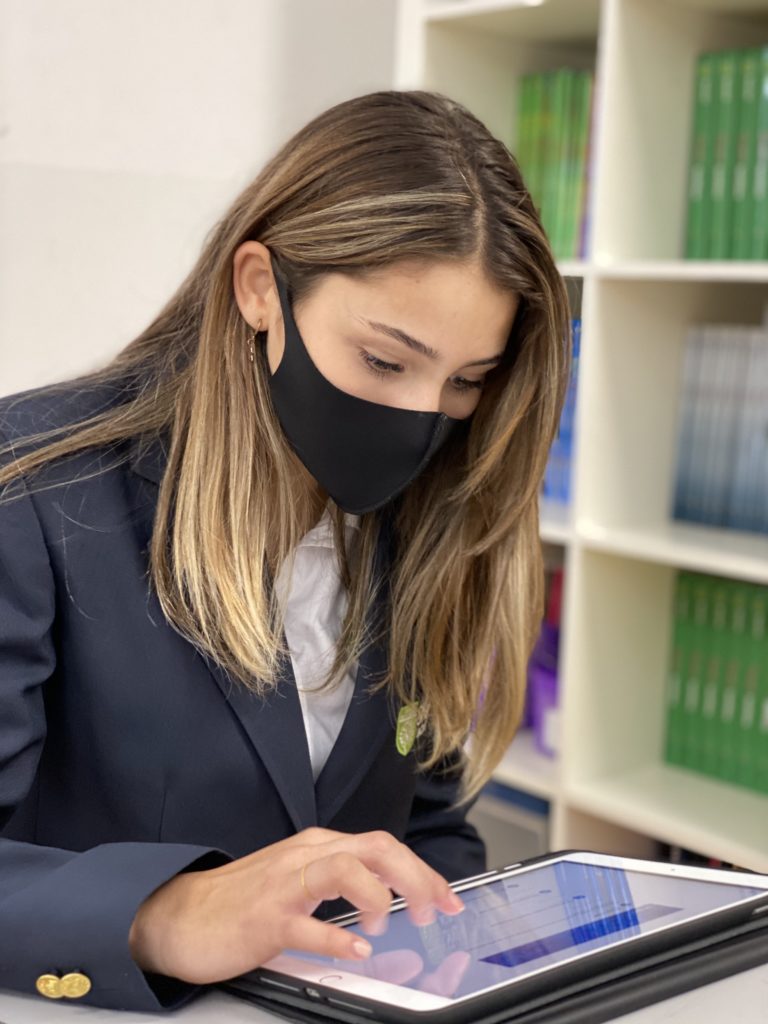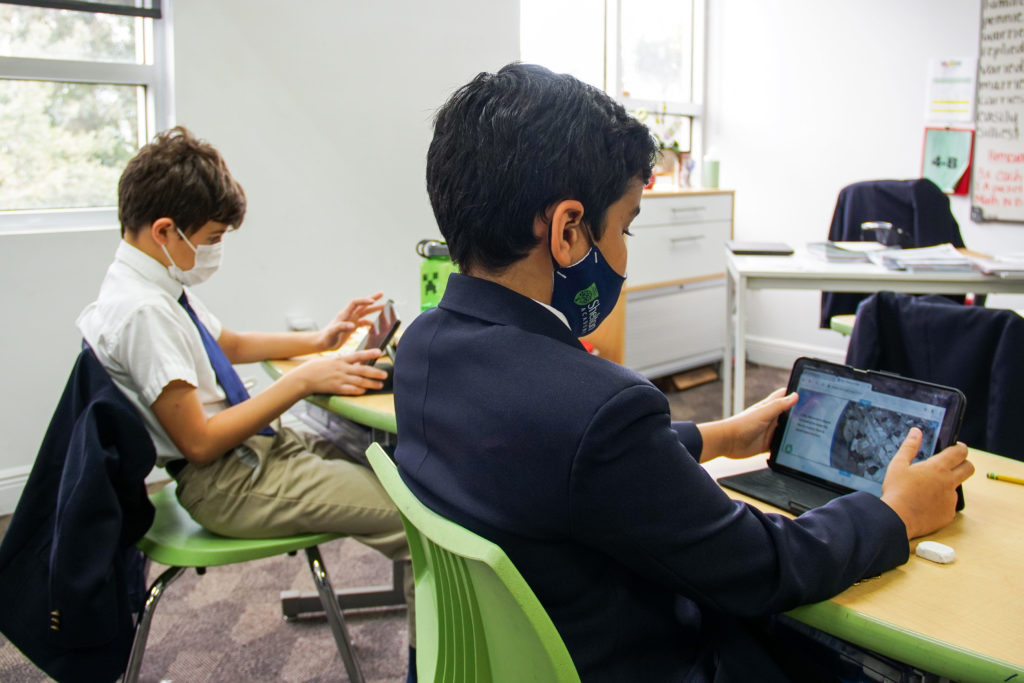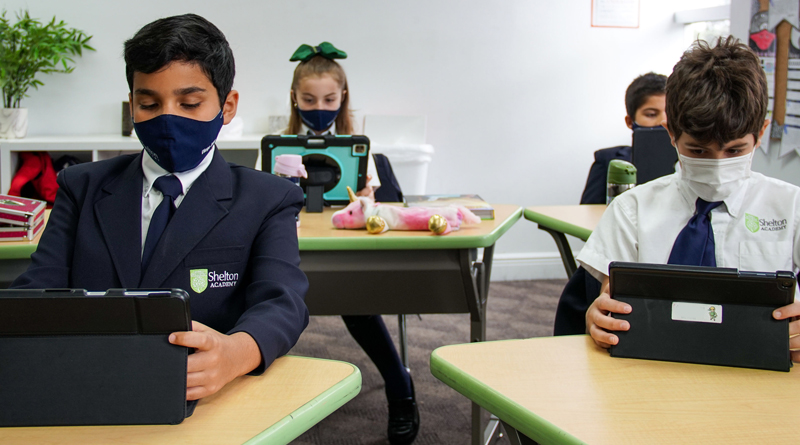The Challenge Of Innovating Teaching In Times Of Pandemic
By: Department for Innovation and Investigation of Shelton Academy
The innovative educational practices of the new Shelton Academy are centered around allowing students the best environment to learn and grow to their fullest potential. We strive to help our students excel at their academics by approaching them on a personal level, as a mentor guiding a mentee. The pandemic has taken an emotional toll on the world, there is no debating there but one of the most affected have been the younger generations. Their lives were dramatically uprooted the second their classrooms turned into online monitors. The effects on the academic trajectory of these young adults in the making coursing through their formative school years brought about by the pandemic are yet to be fully understood. Even though it appears the world is moving towards brighter days the bulk of government set limitations remain in place starkly reminding us that we are not in the clear yet.
Government imposed regulations have played a major role in slowing down COVID but they have also showed to be detrimental to institutions such as ours. We are social beings we thrive in social settings and crave human interactions, which is why it is of paramount importance to allow children and young adults to continue their naturally delineated trajectories into adulthood. The shifting of in-person education onto online has now become the norm amongst United States based institutions. The recent positive outcomes brought about by the vaccines have allowed some institutions to gradually reopen, while others remain purely online based, or having adapted a hybrid mix of online and in-person sessions. Our world as educators has been turned upside down to say the least during these past 365 days.
 By the second half of the 20th century schools and academic institutions relied heavily on the premise of the “teaching-learning” approach. This model of imparting knowledge proved to be broad and ambitious at the same time. It centered around creating a by-product that could be generically molded no matter the demographic or the geography, a one size fits all kind of model. This way of approaching teaching was certainly challenged with the coming of the pandemic in 2020. As the educational world moved online it became clear that the model was flawed and overly generalized. In reality no two individuals are the same and the way they imbibe life is different from one another.
By the second half of the 20th century schools and academic institutions relied heavily on the premise of the “teaching-learning” approach. This model of imparting knowledge proved to be broad and ambitious at the same time. It centered around creating a by-product that could be generically molded no matter the demographic or the geography, a one size fits all kind of model. This way of approaching teaching was certainly challenged with the coming of the pandemic in 2020. As the educational world moved online it became clear that the model was flawed and overly generalized. In reality no two individuals are the same and the way they imbibe life is different from one another.
It is safe to say that had the pandemic struck the world 15 or 20 years ago the entire world would have been widely ill prepared. The lack of technology would have made remote work undoubtedly impossible. In a way the fact that world was challenged this way in 2020 was positive. It sped the globe 10 years into the future and gave work-life balance craving professionals a breather. However, the effects it had on young students was the opposite. The impersonal scenarios brought about by these hyper-modern times have impacted the characters of those who need constant human stimulation to hone their talents. Those artistic and creative inclined characters appear to have been atrophied by the arrival of school via a digital screen where individualism is encouraged, and instant gratification is one click away. It appears the world has sped up closer to 2030 but let’s keep our educational institutions at 2019 levels. We cannot expect fruitful results from the minds of young students if all we give them is unlimited accessibility without a previous delineated path forward set forth by a teacher or mentor.
It has been argued that the pandemic-adapted online method of teaching has resulted in more negatives than positives. The taking away of the in-person class setting has caused students to gradually lose knowledge. These individuals are growing up in a depersonalized system, where being individualistic is the new normal. This is however no fault of their own, it is no one’s fault to be exact. The pandemic brought the world to a halt and every measure taken was set in place to save lives. The rapid implementation of the vaccine on a global scale is finally showing us a tentative way out, but as educators we cannot yet take stock on the academic insights that will surely surprise us. Our students have yet to take their standardized tests, only then will we be able to fully comprehend the current state of their academic levels. The results if they are near what has been forecasted will not show advances but rather retreats.
Shelton Academy is taking pro-active steps towards minimizing the negative effects of the pandemic caused academic shift. It is our goal to minimize the side effects and rapidly help students re-adapt to in-person schooling as it is our firm belief that no good will ever come from a young mind that is led to believe that individualism and depersonalization is the path forward. A study conducted by Shelton Academy’s Department of Innovation and Investigation asked 35 faculty members to propose their suggestions to steer the situation back into normality. The results were 91% favored the combination of online and in-person teaching vs 9% that favored in-person teaching.
The hybrid model of combining online with in-person schooling can be beneficial and allow an easier transition into full time in person assistance. However, over 50% of faculty feel they need to gradually improve their knowledge pertaining to the technologies that must be employed, while a 5% urge the need for immediate assistance and capacitation. The results of this study come to show the need for continuous faculty training. With this said the Shelton Academy administration has taken upon itself to offer its staff coaching on the proper use of the technologies required in order to efficiently alternate between the bimodal online and in-person lessons. Currently, as a whole the results have not been optimal due to faculty not being able to masterfully understand the procedures required to employ the bimodal method of teaching.
 A follow-up faculty survey of how to best implement the bimodal method yielded the following results. A 50% said that the bulk of the challenge with the method is in the actual delivery of the lessons. Many are particularly worried with the academic and emotional well-being of their online students. They specifically worry about the amount of one on one time they can give each student as well as their ability to stay focused. A 30% worry about their ability to keep order of their unruly students both online and in-person, specifically those in elementary grades. Others aim their frustrations at the parents who aid their children’s bad behaviors by encouraging them to hide from the camera views or even assist with assignments.
A follow-up faculty survey of how to best implement the bimodal method yielded the following results. A 50% said that the bulk of the challenge with the method is in the actual delivery of the lessons. Many are particularly worried with the academic and emotional well-being of their online students. They specifically worry about the amount of one on one time they can give each student as well as their ability to stay focused. A 30% worry about their ability to keep order of their unruly students both online and in-person, specifically those in elementary grades. Others aim their frustrations at the parents who aid their children’s bad behaviors by encouraging them to hide from the camera views or even assist with assignments.
Another challenge with bimodal is the inability to maintain the natural course of the lesson. For example, students physically present are more inclined to participative and are often times more engaged than those assisting online. When it comes to “hand on” activities the challenges are the same. Those physically present show more interest than those peeking through the computer screen. Then there are the repetitive cases of “cheating” by part of the online students. Those participating online have more access to technology and less direct oversight from their professors.
The challenges Shelton Academy faces have increased with the shift towards the online modality. Nevertheless, the tenacity and adaptability of the faculty during these times has been incredible. We firmly believe that no pandemic-era approach to education will ever be as effective as the sheer magic and efficiency of in-person teaching. Though many professors have come forward with more open minds regarding the pandemic-era academic adaptations the general consensus firmly supports the pre-COVID model of education.
Simon Sinek argues that innovation is all but efficient and it usually takes form after countess instances of trial and error. Innovation is all about tweaking with something that already works in order to direct it towards a fresh and current path. Our goals and objectives are to innovate with a focus on the core of humanity. We trust that through our efforts the losses brought about by the pandemic will be reined in and swiftly corrected. One thing is for certain though, after all this is set and done Shelton Academy will still be here willing and ready to continue innovating and looking forward to a bright future. A post COVID-19 word is more prosperous when innovations are dreamt up in person.


Pingback: The Challenge Of Innovating Teaching In Times Of Pandemic – Shelton Academy Foundation